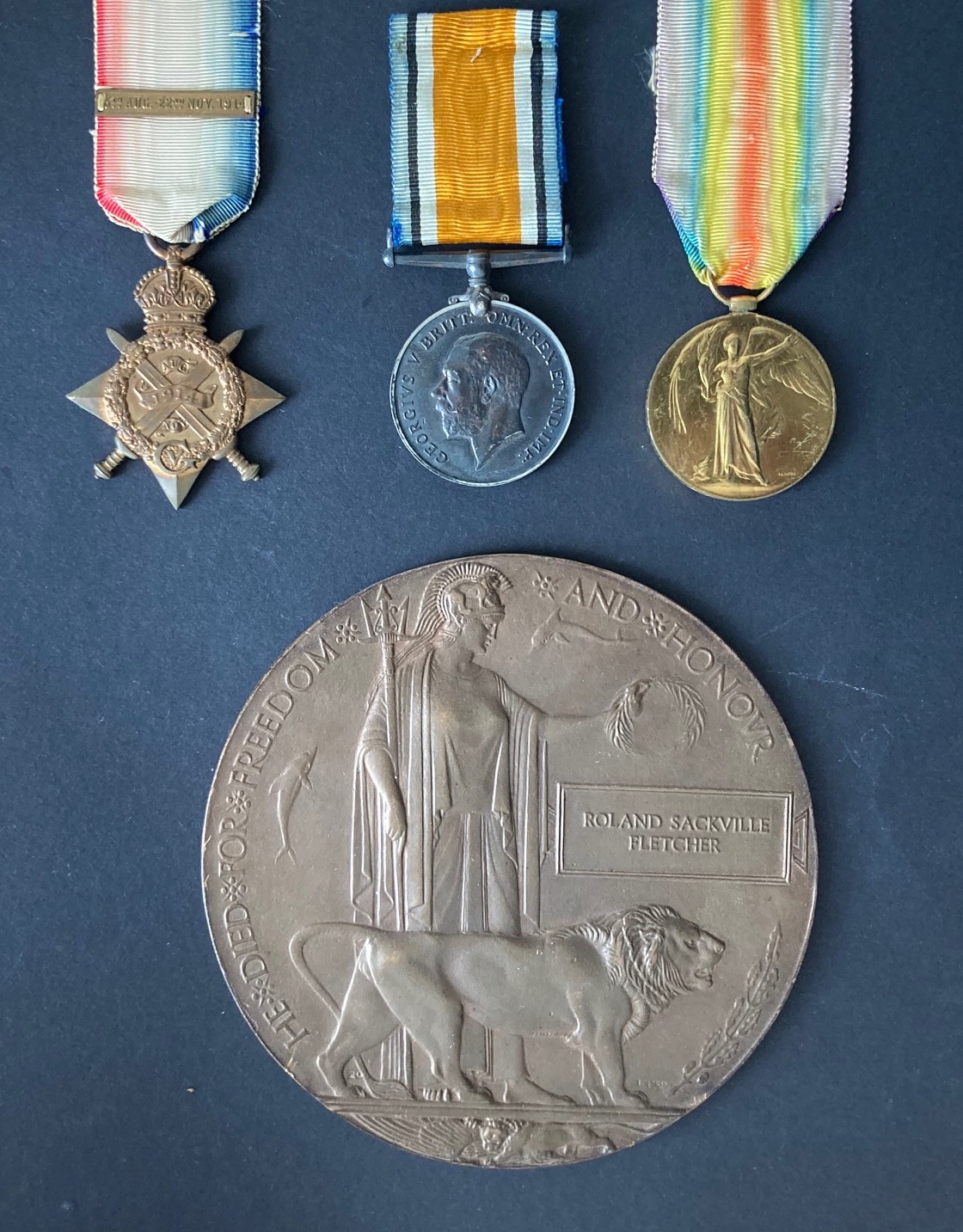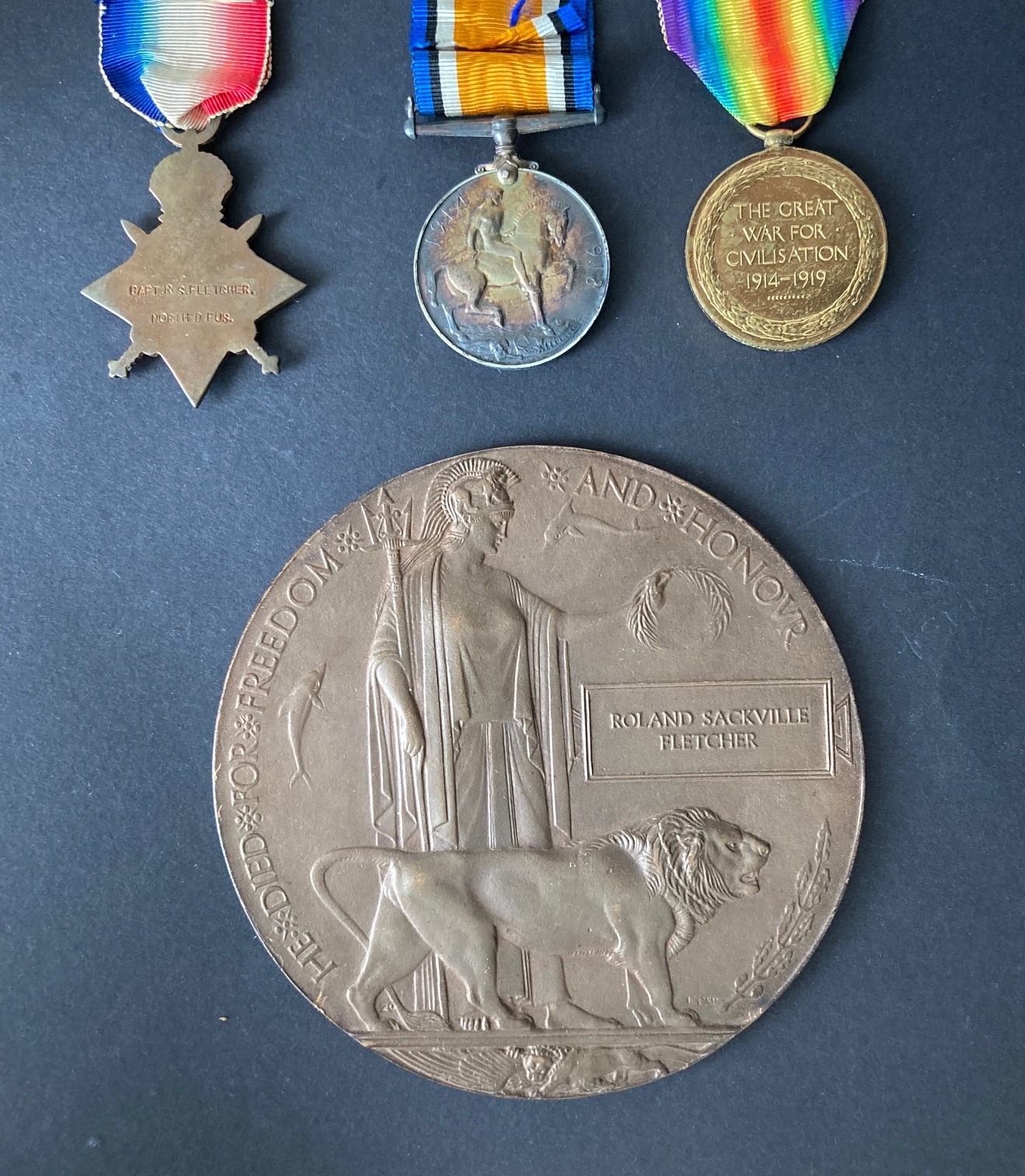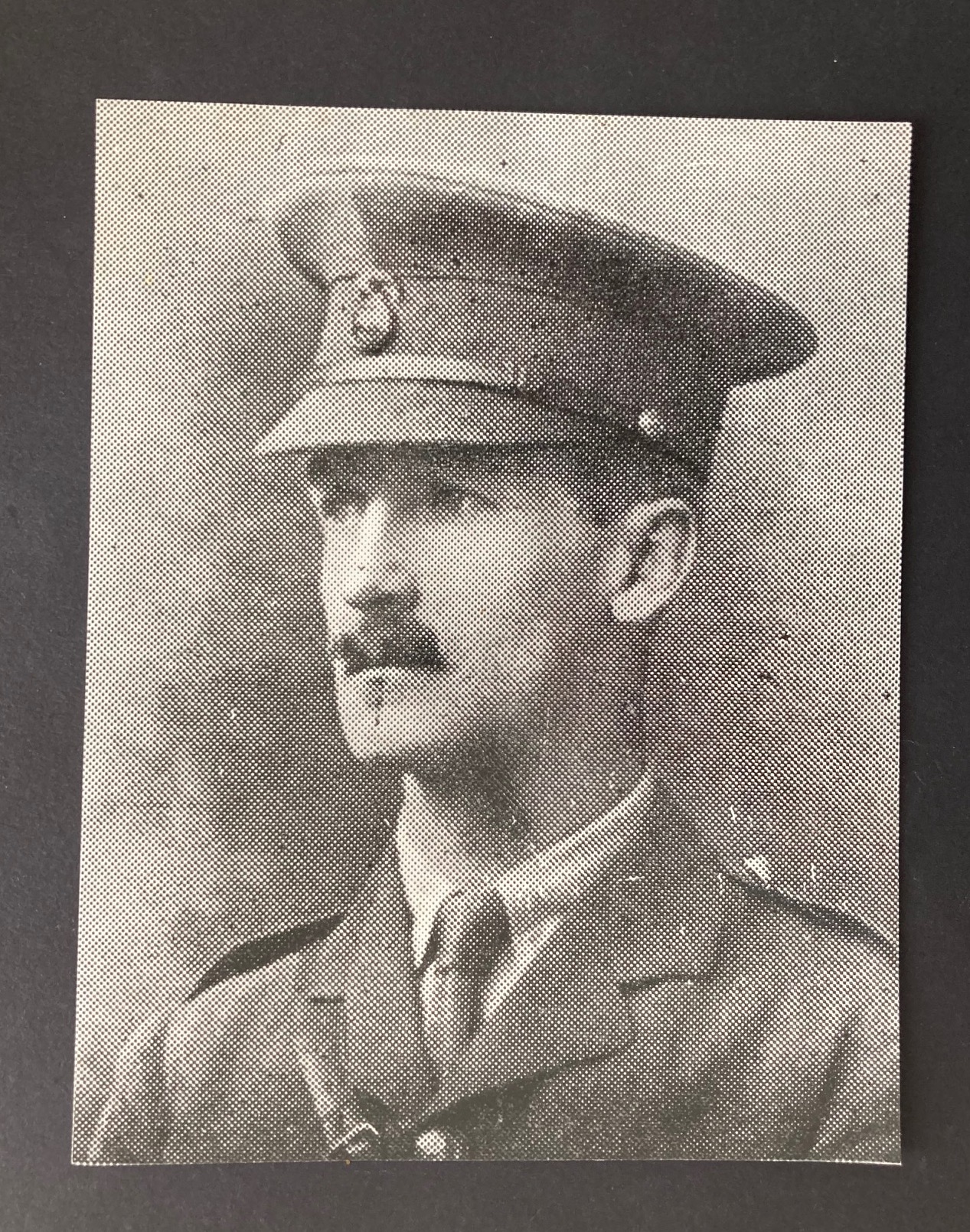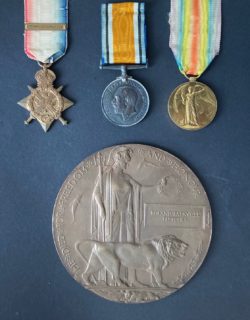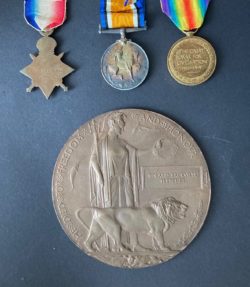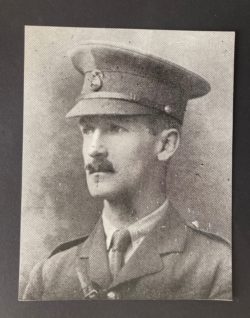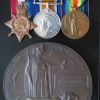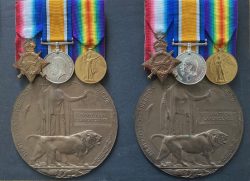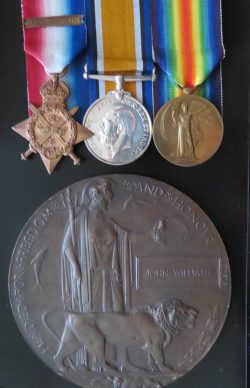1914 Star and bar trio (Capt. North’d Fus.) with Memorial Plaque, killed in action at Ypres on 1 November 1914
£1,500.00
Out of stock
1914 Star, with Aug.-Nov. clasp (Capt. North’d Fus.); British War Medal, Victory Medals (Capt. ), Memorial Plaque (Roland Sackville Fletcher)
From the Hazlewood Shool Memorial (later at Charterhouse)
Captain Roland Sackville FLETCHER
W Company, 1st Battalion Northumberland Fusiliers Date of birth: 24th March 1882
Date of death: 1st November 1914 Killed in action aged 32
Commemorated on the Menin Gate Panels 8 and 12
Roland Sackville Fletcher was born at 68 Warwick Square, Belgravia in London on the 24th of March 1882, the second son of Lionel John William Fletcher, a barrister at law, and Eleanor Mary Agnes (nee Stopford-Sackville) Fletcher of “Elmscroft”, West Farleigh, Maidstone in Kent.
He was educated at Hazelwood School until July 1895, where he was leader of the school choir and was a member of the Cricket XI in 1895. The school magazine wrote of his 1895 cricket season: – “Lost a lot of practice owing to the epidemic. Has never done justice to his powers as a bat or bowler, and though a neat and smart field generally, is by no means safe.”
The magazine wrote the following of him when he left the school: – “….carries with him to Charterhouse a most unique and versatile set of abilities, which only need the steadying ballast of time to develop into an illustrious character. By no means a poor scholar – in style and power: a cricketer and football player distinctly above the average – in possibilities; a good musician and beautiful singer; and quite the best actor we have ever had, his career will be followed with the most intense curiosity and interest.”
He went on to Charterhouse School where he was in Sauderites House from September 1895 to April 1900 and where he was a member of the Choir. He won the Elwyn History Prize in 1900 and served as a Corporal in the Officer Training Corps. He was a member of the Maniacs Cricket XI and of the Swallows Football XI.
He enlisted in the 3rd Battalion Northamptonshire Regiment (Militia) with which he served for nine months before being commissioned as a 2nd Lieutenant in the Northumberland Fusiliers on the 5th of January 1901. He was promoted to Lieutenant on the 26th of February 1902. He was seconded to the North Nigeria Regiment, West African Frontier Force, under the Colonial Office from the 5th of November 1904 to January 1910. During 1907 he was invalided home as a result of an illness and landed at Liverpool on board the SS “Karina” on the 15th of July on his way to Plymouth but later returned to duty. He returned from Nigeria to a posting at Dover and was promoted to Captain on the 4th of September 1912. In November 1912 he sailed to join his Regiment at Inhow near Bombay.
He was of a literary turn of mind and several articles by him appeared in Blackwood’s Magazine, chiefly about his experiences in Northern Nigeria. He made a great study of the language and the customs of the local people and he published a book in 1912, through the Oxford University Press, titled “Hausa Sayings and Folklore; with a Vocabulary of New Words”. He qualified as a first class interpreter in Hausa in 1912 as part of his examination for the Staff College. He was a member of the Wellington Club and was very fond of sport and games and he played cricket for his regiment.
Following the outbreak of war he joined his Battalion at the front near Ypres as a replacement, arriving on the 29th of October 1914.
At 1.45am on the morning of the 1st of November W and X Companies received orders to advance in support of an attack by a battalion of the Lincolnshire Regiment to re-capture the village of Wytschaete, which had been taken by the enemy during the night. Having arrived in the reserve trenches the two Companies were ordered to extend the line of the 3rd Hussars on their right at Hill 76 soon after daybreak. At 7.15am the line being held came under very heavy artillery fire as well as close rifle and machine gun fire from the edge of a nearby wood and from the village. The two Companies were forced to fall back to the second line where they reformed and dug in . They had suffered heavy casualties during the action with Roland Fletcher being seen to fall, after which he was not seen again. They were relieved by the 16th Lancers at 11pm that night.
News of his death was confirmed in June 1915 by a British prisoner of war who had been captured during the action.
His brothers, Lieutenant Commander Walter John Fletcher RN HMS Defender, died on the 12th of May 1917 and Lieutenant Horace William Fletcher 7th Battalion Royal Welsh Fusiliers, died of wounds on the 26th of March 1917.
He is commemorated on the war memorial at West Farleigh and on the memorial at Charterhouse School.
A fine officer’s 1914 casualty group
